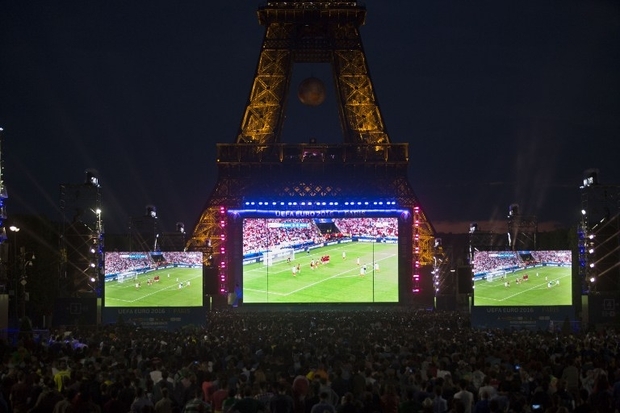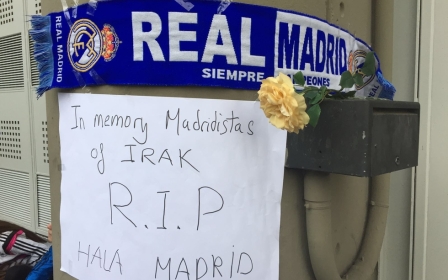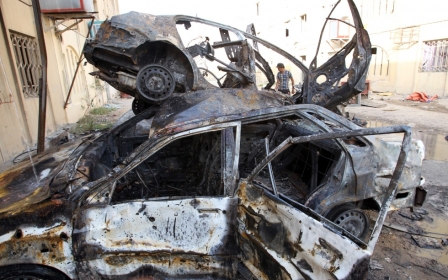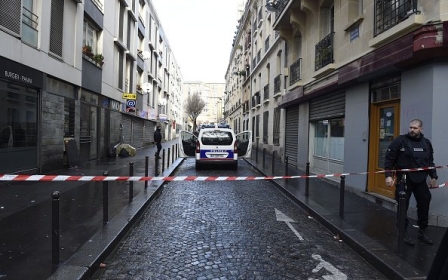Where are our heroes? Fans decry French football team devoid of N African stars

PARIS - Kader focuses on the young football players he trains weekly, who are giving their best on the field. The 36-year-old Frenchman of Algerian origin spends his spare time training these young boys.
But on the night of the the first game of the Euro 2016 competition, France versus Romania, Kader said he did not have the heart to focus on the game, because like him, many French fans of North African descent feel the diaspora has been denied spots in the French team.
"Blame it on the Benzema case," Kader says, a reference to the dropping of Karim Benzema, currently embroiled in claims of an attempt by one of his friends to blackmail his international team-mate Mathieu Valbuena over a sex tape.
Benzema said his exclusion was proof coach Didier Deschamps had "bowed to the pressure of a racist part of France" - a claim Deschamps denies.
Eric Cantona, the enfant terrible of French football, weighed in by saying the "debate was open" on the Real Madrid striker's absence and, by extension, the exclusion of Hatem Ben Arfa who didn't make the final cut despite a remarkable season for his club side Nice.
"Benzema is a great player. Ben Arfa is a great player, but they have some origins. I am allowed to think about that," Cantona said. Deschamps lawyers have said they are considering legal action over the comments.
All this has added to disenchantment among the North African diaspora, with many of those spoken to by Middle East Eye saying football is no longer an example of opportunity and integration that French Muslims can embrace.
"I’m like Cantona, I ask questions," says Kader. "Why didn't Deschamps select Benzema or Ben Arfa for the team? As Cantona said, Ben Arfa's only crime is being one the best French players."
Benzema was not selected for the French national team in order "to set an example", Kader says.
At the Mosque of Paris, Marwan, a French-Tunisian man in his 50s, says with a sigh: "Benzema is being blamed for his so-called ungratefulness."
Guy Roux, the coach of French football club RC Lens, has said that if Benzema was named "Jean-Claude" he wouldn’t have been in so much trouble, and that Euro 2016 was taken away from him because of his origins.
"Those words did not cause a public outcry. Cantona said the same thing and it created a bit more turmoil. However, when Benzema himself raises the same questions, everybody comes after him," says Marwan.
He then steps into the mosque.
Near the Eiffel Tower Yanis, a Parisian in his 30s is quiet, checking his watch every once in a while. He says he will break his fast during the match.
His friend Kenza finds it funny to be here watching football, adding that he has hardly followed the sport since France won the World Cup in 1998 with its celebrated team under French-Algerian captain Zinedine Zidane, at the time symbolising a new, multicultural France at ease with itself. How long ago that seems now.
"I don’t know a thing about this sport. I used to watch a few games sometimes when Zidane was playing, but that was pretty much it. I was 10 when the French team won the World Cup in 1998 in France. I remember how happy my parents were, and my whole neighbourhood, too. Everybody was out, honking and cheering.
"But the whole concept of a mixed-race French team was pure fantasy. Seven years after winning the World Cup, we experienced the damaging ‘suburban riots’ of November 2005. Then, the terrorist attacks of January and November 2015 did not help, nor did the state of emergency that was set up afterwards. Benzema and Ben Arfa could have created zeal and passion among people in the suburbs," he says.
"I grew up on an estate. I am telling you, Adil Rami [a French player of Moroccan descent] won’t be enough to make us relate to this French team. Benzema and Ben Arfa would have been stronger symbols of identification," he adds.
Rami was a late call up after the injuries to more established defenders.
However, Yanis says he is still supporting the French team "for the love of the game and because I am French after all".
Thomas, in his 20s, butts in: "If we lose, and Benzema is found not guilty this autumn, the fact that he wasn't selected will prove to be a big mistake."
Farid, a computer engineer, watched the opening match from his home in Alsace in eastern France. He says he is not very enthusiastic about Euro 2016.
"The fact that those two players have not been selected is a total injustice," he says "Many of us cannot relate to this French team. Adil Rami is an alibi, he is being used by Deschamps to prove that there’s diversity among the French team."
The worst thing in this case is the double standard, he adds.
"Even Vikash Dhorasoo, the French football player, said so. This case stinks of racism. It’s a triple insult. An insult towards working-class neighbourhoods where football is the go-to sport," says Farid. "We have to bear in mind that both Benzema and Ben Arfa come from those neighbourhoods. It is also an insult towards Muslim people from an Arab background or not. It is an insult towards French people from a North African background."
‘National harmony’ returns to the bench?
Pascal Blanchard, a historian and expert on the French colonial empire, also links what is currently happening to the French national team to the question of diversity in France.
"As always, who the team is made up of tells a lot about the society it represents ... If the football team is going through ‘an identity crisis’ is it because the French nation is full of tensions that are being expressed publicly and on a large scale through football," he tells MEE.
Moreover, he points out that French society has difficulty talking about identity.
"France has been trapped in many layers of several identity crises and now explodes whenever there’s a little trigger. But this is the reality because politicians have never wanted to genuinely deal with it, they have never taken on their responsibilities on the matter, and this has been going on for the past 30 years. An entire generation sacrificed," he says.
"For many months the government has been pressuring and has even stepped in several times in this case, which explains why Karim Benzema had to defend himself. Last March, [prime minister Manuel] Valls openly said he was against the Benzema comeback in the French team. He claimed it was not the right time since Benzema was still being interrogated about the Valbuena case," he adds. "For the youth, a great player has to be exemplary."
So what does this mean for French football then and now? In 1998, was a cheerful France supporting its mixed-race team just an illusion? It’s not that easy according to the historian.
"1998 depicted a time where France realised for the first time that it was diverse. Before then no one wanted to see other races but football brought it to the light. There is a before and an after 1998. It was a real turning point that goes beyond the fantasy."
* Many interviewed requested their last names not be used.
This story originally ran on MEE's French website and translated by Nassima Demiche.
New MEE newsletter: Jerusalem Dispatch
Sign up to get the latest insights and analysis on Israel-Palestine, alongside Turkey Unpacked and other MEE newsletters
Middle East Eye delivers independent and unrivalled coverage and analysis of the Middle East, North Africa and beyond. To learn more about republishing this content and the associated fees, please fill out this form. More about MEE can be found here.




